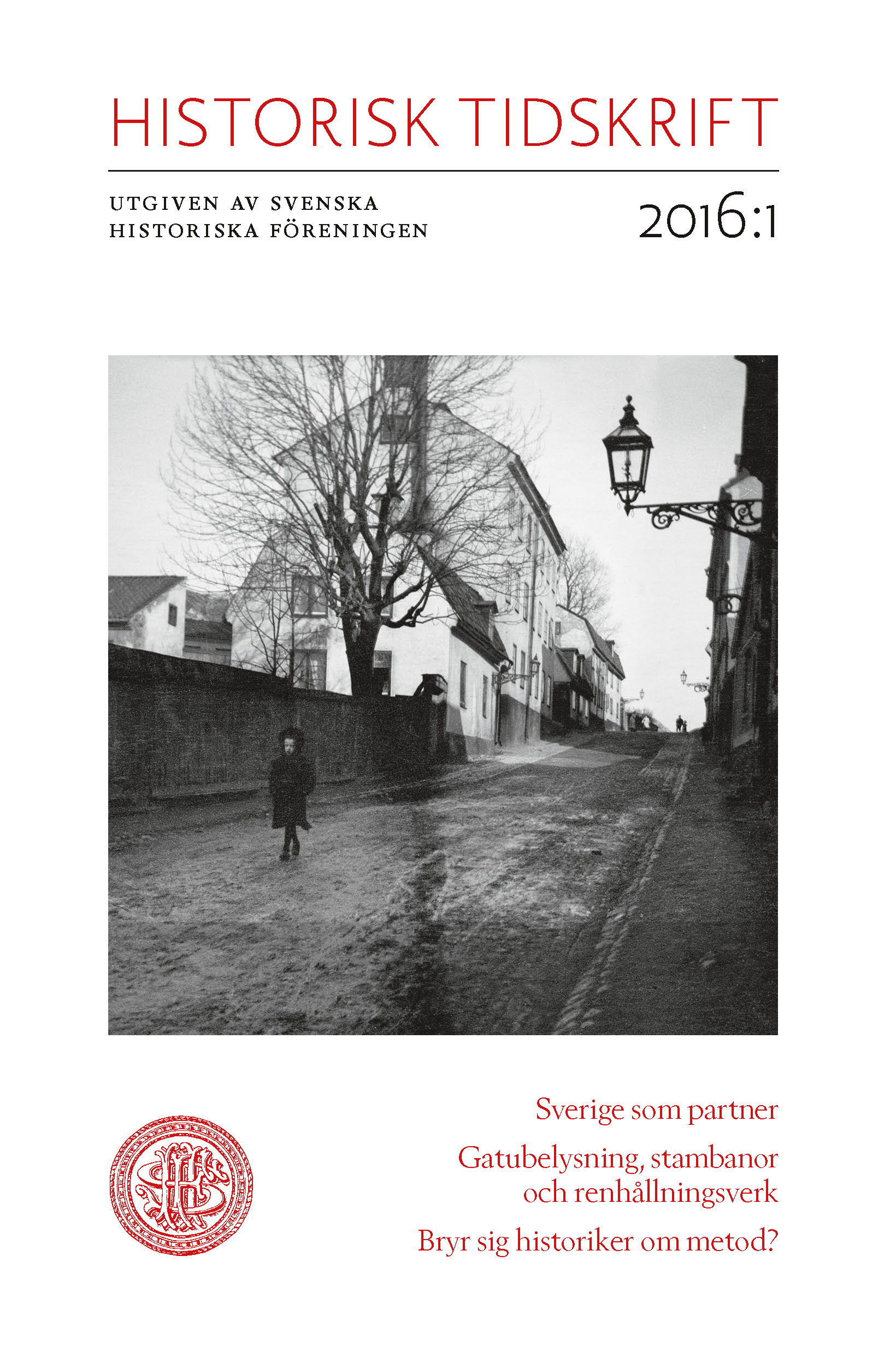Abstract
Who will take care of the common good? Political conflict about the organization of public services in Sweden 1720–1860
This article explores four political debates in the Swedish diet and among the ruling elite in Stockholm on the organization of public services. The results demonstrate how in different ways notions of the common good permeated the discourse on all occasions.
When the Swedish government tried to initiate public street lightning in Stockholm in 1749, there was a broad consensus among government and city officials that this should be done by the creation of a municipal organization financed by tax income. The burghers of Stockholm, however, opposed the proposal and argued that they were themselves better suited to care for the street lights. The common good should be provided by individual action of responsible, male householders. Eventually the burghers got the upper hand and public street lightning continued to be organized by private initiative until the mid-nineteenth century.
When in the 1720s the Swedish diet discussed the lease of custom duties by a merchant consortium (Sw. generaltullarrendesocieteten), the problem of corruption emerged as the bone of contention. Proponents claimed that this form of private enterprise was an effective means to suppress widespread corruption among state officials. Their opponents argued to the contrary that private leaseholders would skim off the profits for themselves, thereby depriving the state of its income.
In the mid-eighteenth century the city authorities in Stockholm debated whether the emptying of latrines should remain an individual concern or if it should be recognized as a public matter. The city officials at first decided that this task was indeed a matter of public concern that should be handled by private entrepreneurs. Within a few years they had changed their minds, however, proposing instead that a new communal organization should be created for the removal of city waste. By now, the ruling elite of Stockholm had begun to identify the common good with municipal direction.
The development of railway infrastructure was a hotly debated subject in the Swedish diet of the 1850s. Some representatives argued that private entrepreneurs would provide more cost-effective solutions than publicly managed railways, while others claimed that the state must administer a national system of railways. In the debate, private self-interest was juxtaposed with equal access to the common good. The proponents of state intervention claimed that national concerns must have priority over financial gain, and this argument would eventually influence the final decision.
By the middle of the nineteenth century there was a growing consensus among the ruling elites in Sweden that the common good could best be provided for by state or municipal initiative. In the debates, arguments about organizational efficiency and equal access to public services eventually won out over notions of individual responsibility and private enterprise as a better alternative to corrupt government. In the late twentieth century the debate had shifted radically, however. The reasons for this shift will be the subject of our future research.

